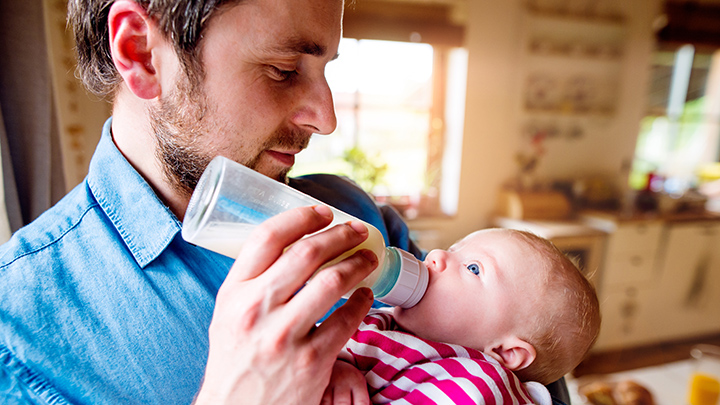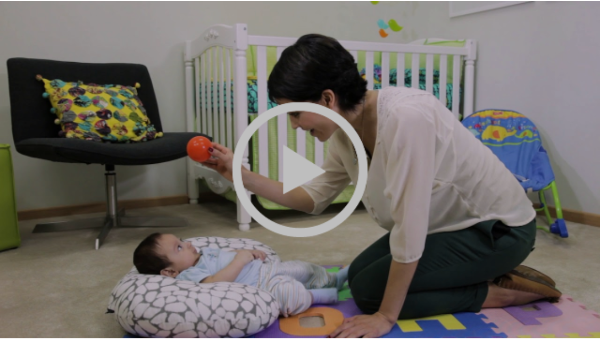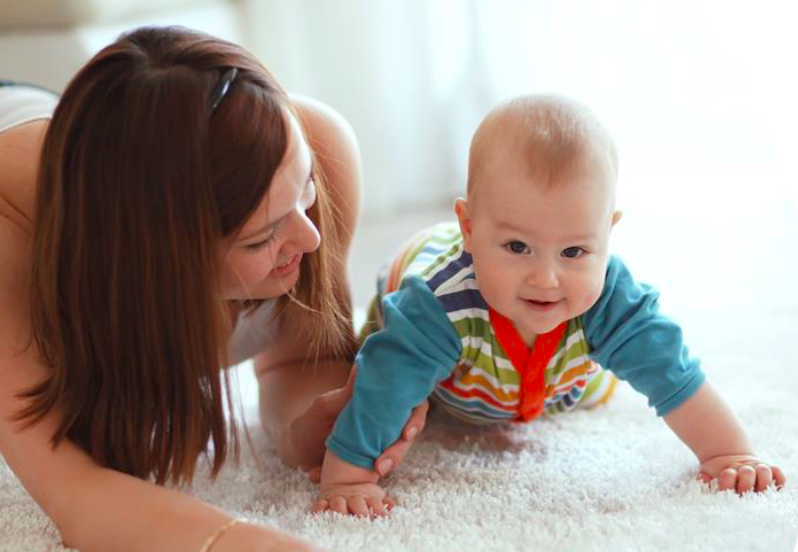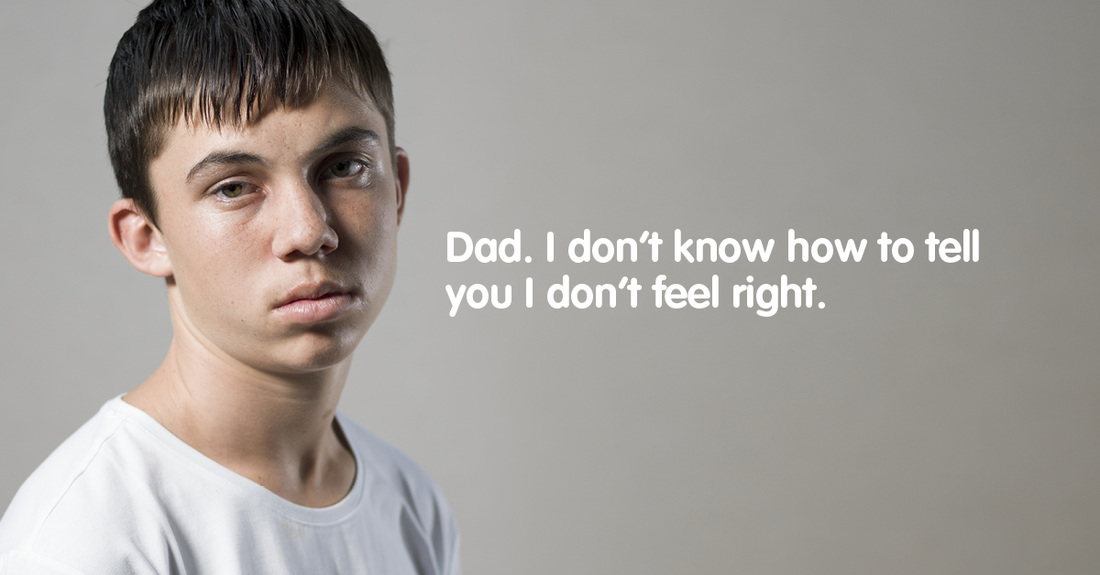Dads overcoming the barriers in the workplace to taking parental leaveCheck out this great article with lots of facts and stories about dads taking prenatal leave - the challenges and benefits.
0 Comments
Article Published in Curtin University E-newsletter | Faculty of Health Sciences | October 2017 21st century fatherhood can be a challenging, rewarding and complicated business. Changing expectations of how fathers participate in family life mean that many dads are more intimately involved with their children than previous generations, and new research is demonstrating just how important the father-child connection is to family functioning and wellbeing.
5 Steps for Brain-Building Serve and ReturnWhat does brain-building play look like?
These steps simply capture how to engage our babies and children. UPDATE - check out this new video of 5 steps for Brain-Building Serve and Return
The following article is taken from an email received from NPS MedicineWise Many people are misinformed
No-one likes seeing a child unwelI with a cold or flu, but it is important for parents and carers to remember that antibiotics only work on infections caused by bacteria, not those caused by viruses. In most cases, children just need rest and time to allow their immune system to fight the virus. Another common misconception is that antibiotics will speed up recovery from cold and flu viruses in both children and adults – but they don't. With any course of antibiotics, there is a risk of developing antibiotic-resistant bacteria. This means that antibiotics are no longer effective against the bacteria they once killed. Once they develop, antibiotic resistant bacteria can exist for up to a year. This is another key reason why it is important to avoid antibiotics unless there is a bacterial infection that won't clear up on its own. Green snot A common belief in the community and outlined in some individual child care centre guidelines is that is that if a child has green snot, they should be prescribed antibiotics. Green snot doesn't mean an antibiotic is required. Green or yellow coloured nasal discharge can in fact be a sign that the immune system is fighting the infection, and not that a viral illness is getting worse. Ear infections Ear infections are commonly associated with colds in children. In children older than 2 years, a middle ear infection will often get better by itself in a few days, as the body's immune system can take care of the infection without any treatment. Children aged under 2 years, often won’t need antibiotics either, but may benefit from antibiotics if they have certain symptoms such as infection in both ears, fluid draining from the ear or if they otherwise seem unwell. It is important to remember that children of Aboriginal or Torres Strait Islander origin are at higher risk of repeated infections and chronic ear problems so should always be assessed by a doctor when they have ear ache. As pain is usually the worst symptom of ear infections, pain relief medicines (such as paracetamol or ibuprofen) are important to help with pain. Antibiotics won't help to relieve initial ear pain. Antibiotic side effects Like any medicine, antibiotics can cause side effects. Common side effects include vomiting, diarrhoea, thrush infection and can also include allergic reactions (such as hives). Antibiotic-associated diarrhoea is particularly common in children taking a course of antibiotics. If taken for a viral illness, antibiotics will not help the illness, but can cause damage to ‘good' bacteria like those found in the gut. Scientists are only just discovering how gut bacteria affect overall health. It takes time for these good bacteria populations to regenerate in a child's body after a course of antibiotics. SPREAD KNOWLEDGE, NOT INFECTIONS Information and resources to share
Independent, evidence-based and not-for-profit NPS MedicineWise enables better decisions about medicines and medical tests. We receive funding from the Australian Government Department of Health. When boys or young men experience mental health difficulties, the response from Dad is really important. It isn't easy for most of us to know what to do or say in such situations. Headspace has put together some tips on how Dads can connect with sons and help them get the support they might need.
The neurology of desire sometimes goes awry - but can be turned around... This radio segment is about eating problems - however, the solutions provided are a really simple description of the amazing way our brains work and how to harness this for positive change. The ideas presented are applicable to addictions of all sorts and for how parents can support children to change problem behaviours. Helena Popovic is interviewed by Lynne Malcolm on All In The Mind (Radio National).
 Yes, I've raised the issue of snoring before... And now an article in the Journal of Paediatrics and Child Health has bought snoring to my attention to attention again. I see a lot of children with sleep problems. Some of my referrals come from sleepless parents and some are directed from the GP. During my assessment, one of the first questions I ask is; does your child snore? Parents can have a bit of a chuckle at this question and may not see the relevance, perceiving their child’s sleep issue as poor managed behaviour rather than having a pathological cause. Obstructive sleep apnoea is a serious condition that left untreated can impact on neurocognitive and cardiovascular functioning, and has been associated with disturbances on growth and mood. Children who snore will not usually present seeking treatment for snoring. It is more likely that their parents will present to health or education services worried about their child’s disruptive behaviour, lack of focussed attention in class or recurrent sickness. When snoring co-exists with poor sleep habits I am very happy to work with the family to develop more sustainable healthy sleep habits, but only on the proviso that the snoring has been throughly investigated and co-morbidities are being treated.  I often comment on how the fathering role is becoming more valued and that fathers are more invested in their parenting. But where's the evidence? The most convincing evidence of this that I've seen lately is that big business is recognising that Dads need time with their kids and family - especially in the early months of of a child's life. Both Virgin Group and Netflix have recently announced they offer parents up to one year of paid leave after the birth of their child - regardless of gender. I haven't looked into all the details, but this is a remarkable move that acknowledges the value of healthy family relationships, and that father involvement is important from the earliest stages of a child's life. |
Archives
May 2019
Categories
All
|
||||||||







 RSS Feed
RSS Feed